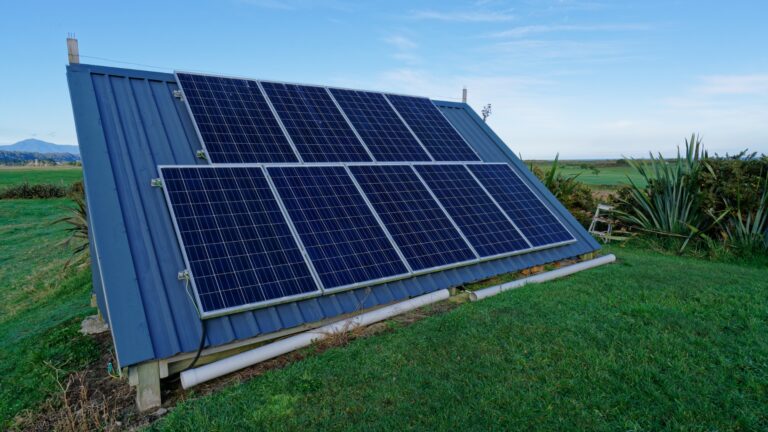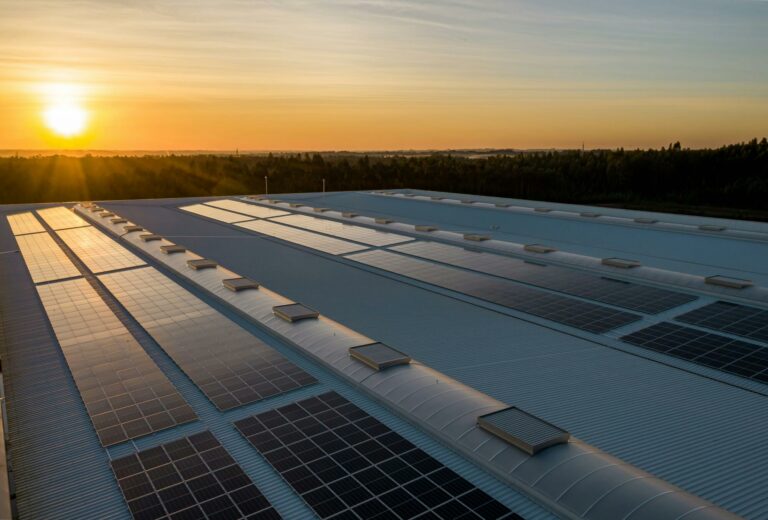Imagine a world where your business not only contributes to a greener planet but also enjoys substantial financial gains. Intrigued? You should be.
With the rise of environmentally conscious practices, solar energy is a beacon of hope for many. They offer a blend of eco-friendliness and economic savvy. This article is a gateway to transforming your business into an environmentally friendly powerhouse, reaping the rewards of green energy.
Here, we’ll explore the ins and outs of solar for business. You will see how this investment isn’t just good for the earth; it’s great for your bottom line.
Welcome to the intersection of environmental stewardship and smart business strategy. Let’s embark on this enlightening journey together.
The Current Landscape of Green Energy
The solar energy sector in the United States has witnessed remarkable growth, with 2023 marking a year of substantial development. Overcoming initial setbacks due to supply chain issues, the industry has bounced back strongly.
In the third quarter of 2023 alone, the U.S. solar industry installed a staggering 6.5 gigawatts of capacity. This number reflects a 35% year-over-year increase. This growth trajectory is underpinned by federal clean energy policies, which have started to significantly influence the sector.
The Inflation Reduction Act of 2022 stands as a monumental legislation for the solar industry. It is earmarking $369 billion for climate and energy initiatives. This act introduces new incentives like tax credit monetization and taxpayer deductions, making solar energy more accessible to businesses.
The implementation of this act is crucial. It will define the long-term impact of these incentives on the solar industry.
Despite the promising growth, the solar industry faces its share of challenges, as we will discuss below. However, the industry is adapting, with signs of easing supply chain issues and an increase in domestic manufacturing capabilities.
Financial Incentives for Investing in Solar Panels
In 2022, the U.S. government passed the Inflation Reduction Act, introducing major benefits for businesses investing in solar energy. This act makes solar investments more appealing by offering direct payments instead of traditional tax credits.
This change means businesses can see financial returns from their solar projects sooner. Also, the act includes tax deductions for those investing in solar energy, adding another layer of financial incentive.
Federal incentives form the backbone of support for solar investment. However, it’s also important to look at state-level incentives. Each state may offer different benefits for solar energy, and these can add significant value to your investment.
By tapping into both federal and state incentives, businesses can maximize their financial benefits from going solar.
Choosing solar energy is not just about immediate benefits. It offers long-term financial advantages like reducing energy bills and increasing property values. Solar energy also means less reliance on traditional energy sources, protecting businesses from the ups and downs of energy prices.
When you decide to explore solar energy for your business, the first step is to get an expert assessment. This helps tailor the solar solution to your specific business needs. Also, selecting the right installation partner is crucial to ensure the effectiveness of your solar energy system.
Challenges and Considerations for Solar Panel Installation
The transition to solar energy, while beneficial, comes with its own set of challenges. A notable issue has been the rise in solar loan costs, a consequence of increasing interest rates. This has made the acquisition of solar panels more financially demanding in certain markets.
Additionally, policy changes also alter the economic landscape of solar investments, affecting the expected returns from these installations. Businesses must stay informed about these market shifts. With that knowledge, they can adapt their strategies accordingly to ensure a successful transition to solar energy.
The solar industry has been contending with supply chain disruptions. These disruptions are largely due to global events like the COVID-19 pandemic. As well as legislative changes such as the Uyghur Forced Labor Prevention Act.
These factors have intermittently hindered the availability of solar modules and related components. However, there is a silver lining as these challenges are beginning to subside. A shift towards increased domestic manufacturing is observed.
Businesses planning to adopt solar energy should consider these aspects and explore options for utilizing locally manufactured solar components, potentially offering a more reliable and timely project execution.
The Future of Installing Solar Panels
Solar technology is advancing rapidly. Today’s solar panels are more efficient than ever before. This translates to more power generation per panel.
Improvements in battery storage technologies mean that businesses can store surplus energy for use outside of peak sunlight hours. Allowing for optimal use of their energy consumption.
The legal and regulatory framework surrounding solar energy is in a state of flux. More states are adopting policies that encourage the use of solar energy. These changes can impact the cost-effectiveness and operational aspects of solar energy for businesses.
In today’s environmentally conscious market, adopting green practices like solar energy is a utility choice. However, it is also a statement of corporate responsibility.
Utilizing solar energy demonstrates a commitment to the environment. You can enhance a business’s appeal to eco-minded customers and partners.
Now presents an opportune time for businesses to consider solar energy. The combination of:
- Financial incentives
- Technological advancements
- Societal emphasis on sustainability
All of these factors position solar energy as an increasingly attractive option. Businesses adopting solar solutions now are poised to be at the forefront of this growing trend.
The landscape for solar energy in businesses is ripe with potential. For businesses contemplating a shift to solar, the current climate offers a synergistic mix of benefits and opportunities.
Solar for Business: Powering Your Future
As we conclude, it’s evident that adopting solar for business is a strategic decision with far-reaching benefits. The convergence of financial incentives, technological advancements, and a growing emphasis on sustainability makes solar energy an indispensable asset for modern businesses.
For businesses ready to embark on this sustainable journey, Huston Solar stands as a leading provider of customized solar solutions. Our expertise in delivering efficient, tailor-made solar installations ensures that your business can capitalize on the full spectrum of benefits offered by solar energy.
Choose Huston Solar for a partnership that not only elevates your energy efficiency but also aligns your business with environmental responsibility.



